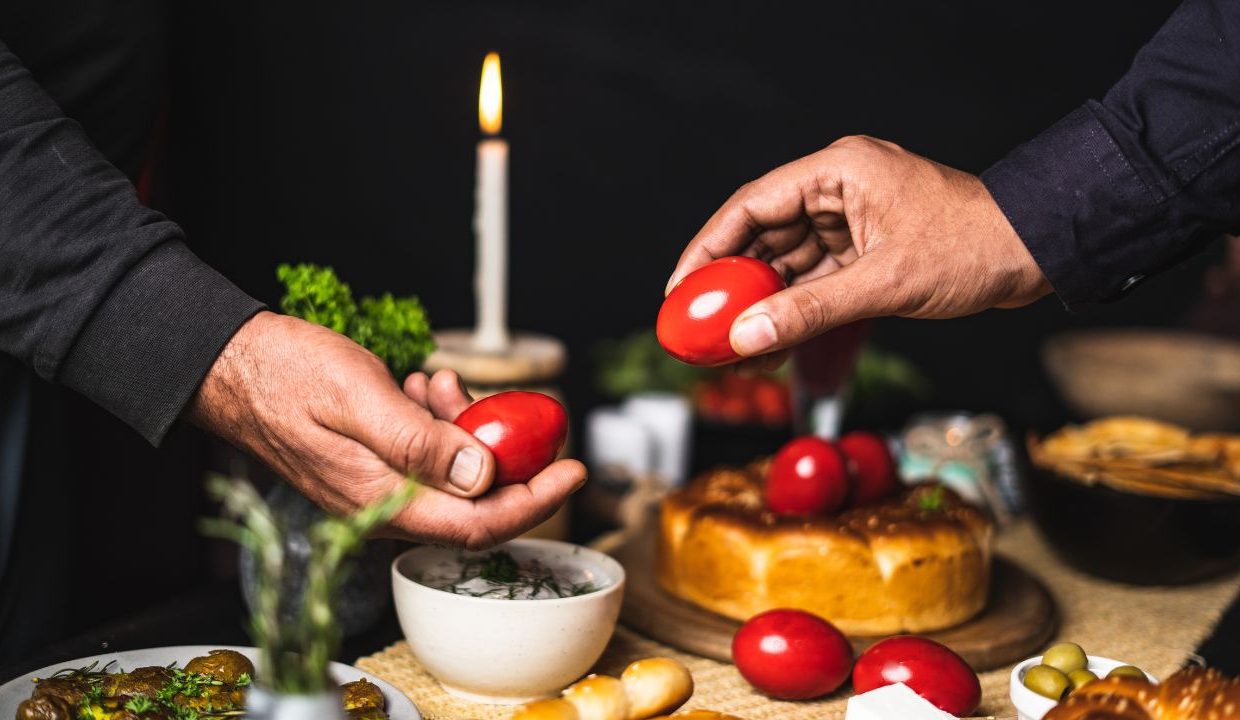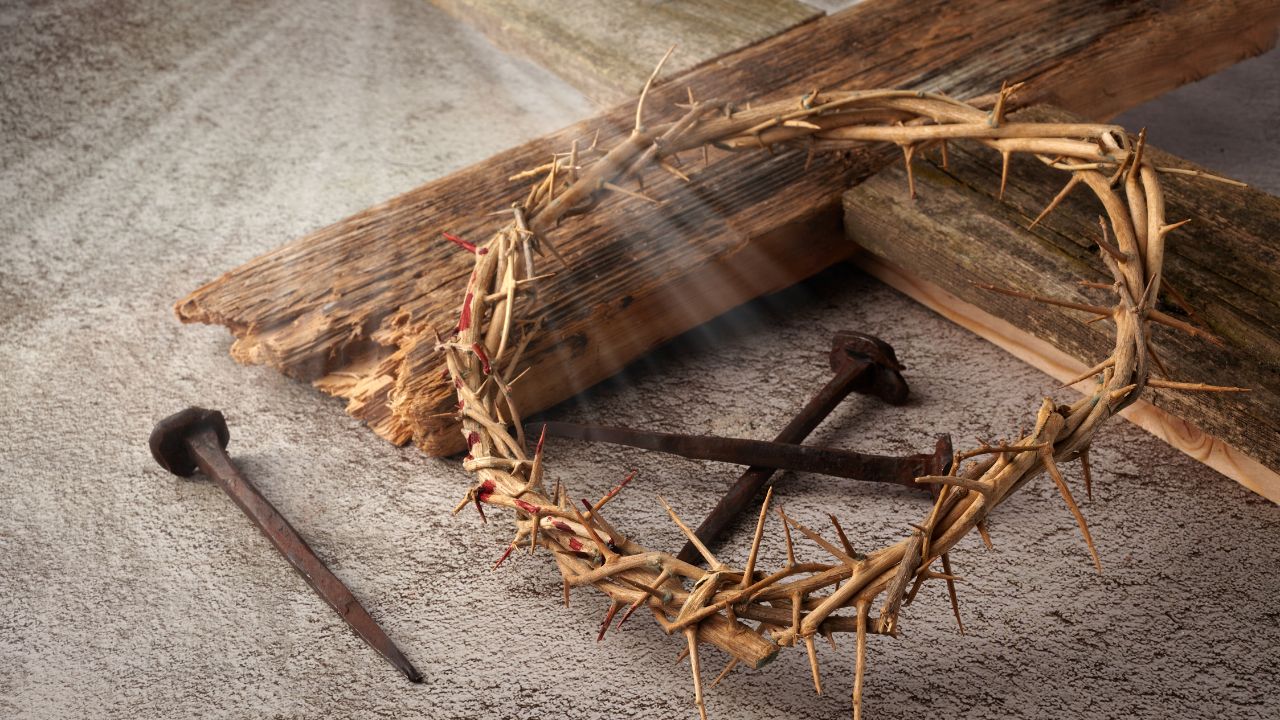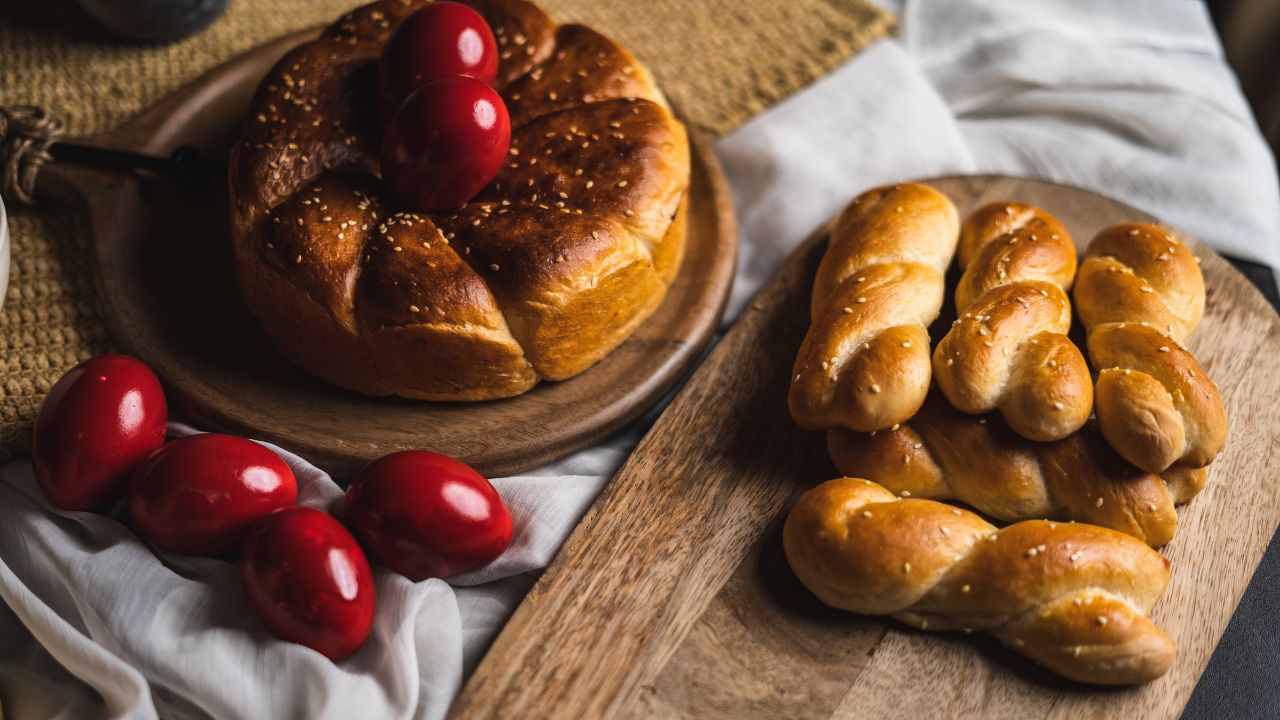
Orthodox Easter in Messinia, Greece, is more than just a religious holiday it is a deeply spiritual and cultural experience that brings communities together in a vibrant celebration of faith, tradition, and renewal. As the most significant holiday in Greece, Easter is marked by solemn rituals, heartfelt gatherings, and joyous feasts, making it an unforgettable time to visit this breathtaking region.

Here’s a breakdown of what happens each day during Holy Week
The Holy Week (Megali Evdomada), which leads up to Easter Sunday, is a time of deep reflection and devotion. Churches across Messinia hold special liturgies, processions, and candlelit ceremonies, creating a truly mystical atmosphere. The air is filled with the scent of incense, the sound of Byzantine hymns, and the warm glow of flickering candles, as locals and visitors alike participate in centuries-old traditions.
A Celebration of Faith
- Holy Monday: On this day, the Orthodox Church commemorates the story of the fig tree that withered after Jesus cursed it. Many people fast on this day and attend church services.
- Holy Tuesday: The focus of this day is on the parable of the ten virgins from the Gospel of Matthew. Church services are held, and people continue to fast.
- Holy Wednesday: This day is also known as “Spy Wednesday” because it is believed that Judas betrayed Jesus on this day. Church services are held, and in the evening, many churches perform the Service of the Holy Unction where believers are anointed with holy oil.
- Holy Thursday: This is the day of the Last Supper, and in the evening, the Service of the Twelve Gospels is held, where twelve passages from the Gospel are read. This is a long service that can last several hours.
- Holy Friday: This is the most solemn day of Holy Week. In the morning, the Royal Hours are held, and in the evening, the Procession of the Epitaphios takes place. The Epitaphios is a decorated wooden structure that represents the tomb of Christ. It is carried through the streets by the faithful. Many people also fast on this day.
- Holy Saturday: On this day, the Resurrection Service takes place in the evening. This is a joyous celebration of Christ’s resurrection, and it is common for people to attend church in their best clothes. At midnight, the priest announces “Christos Anesti” (Christ has risen), and people exchange the greeting “Christos Anesti” with each other.
- Easter Sunday: This is the day of the Resurrection, and it is a joyous celebration. Many people attend church services in the morning, and then they enjoy a feast with family and friends. Traditionally, lamb is roasted on a spit, and red-dyed eggs are exchanged as a symbol of new life.
In Messinia Holy Week is a time of intense religious devotion and celebration.
The services are conducted in Greek, but even if you don’t understand the language, you can still appreciate the beauty of the rituals and the sense of community that is present. The area also offers beautiful scenery and historic sites to visit during your stay.
In some villages, especially in the mountainous regions of Messinia, traditional customs are still observed. Such as the lighting of bonfires and the throwing of pots from balconies, which symbolizes the casting out of evil spirits. Overall, Easter in Messinia is a time of reflection, tradition, and celebration. It is a wonderful time to experience the rich cultural heritage of the region.
If you’re visiting Messinia during the period of Orthodox Easter, there are plenty of other activities you can do besides attending the religious services and rituals.

Here are a few suggestions to do Easter in Messinia:
- Visit archaeological sites and museums: Messinia has a rich history, and there are several archaeological sites and museums you can visit to learn more about the region’s past. For example, you could visit the ancient city of Messene, the Palace of Nestor, or the Archaeological Museum of Messenia.
- Enjoy the natural beauty of the area: Messinia has stunning natural scenery, including beaches, mountains, and forests. You could go hiking, swimming, or simply relax on the beach.
- Try local cuisine: Greek cuisine is known for its delicious flavors and fresh ingredients. During your visit to Messinia, be sure to try local specialties such as “kokoretsi” (grilled lamb offal), “stifado” (beef stew), and “feta” cheese.
- Attend cultural events: During Holy Week, there may be cultural events and festivals taking place in Messinia. Such as traditional dance performances, music concerts, or art exhibitions. Check with the local tourist office or search online for events happening during your visit.
- Explore nearby towns and villages: Messinia is surrounded by charming towns and villages. Each with its own unique character and attractions. For example, you could visit Kalamata, Pylos, or Koroni.
Overall, there’s plenty to see and do in Messinia during Orthodox Easter. Whether you’re interested in religious traditions or simply want to enjoy the beauty and culture of the region.
🌿 Celebrate Easter in Messinia! Enjoy authentic traditions, stunning villas, and festive feasts. 🏡✨
📅 Book your luxury stay now with LuxuryHolidays.gr!
Follow us on Instagram and to Facebook for beautiful pictures of the area that you can travel.
